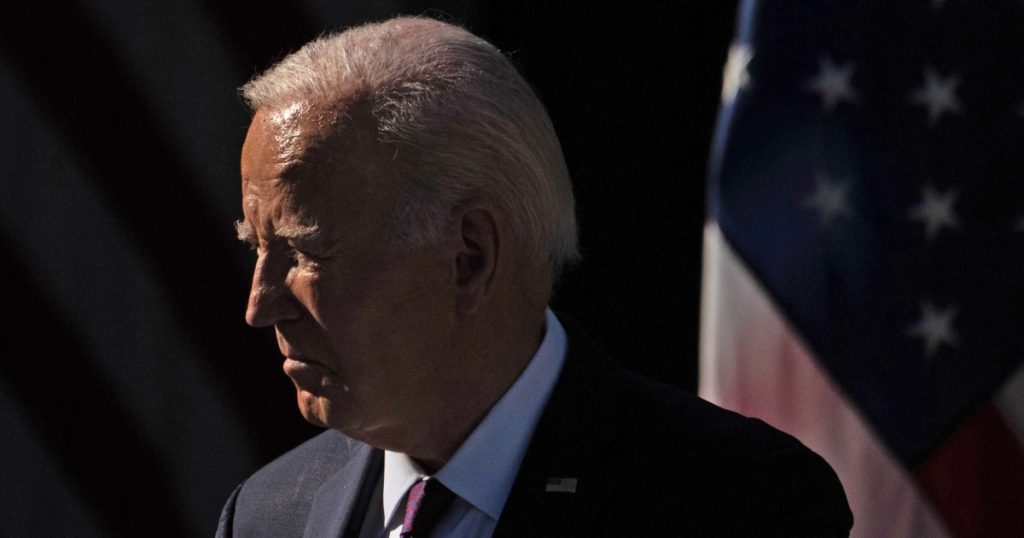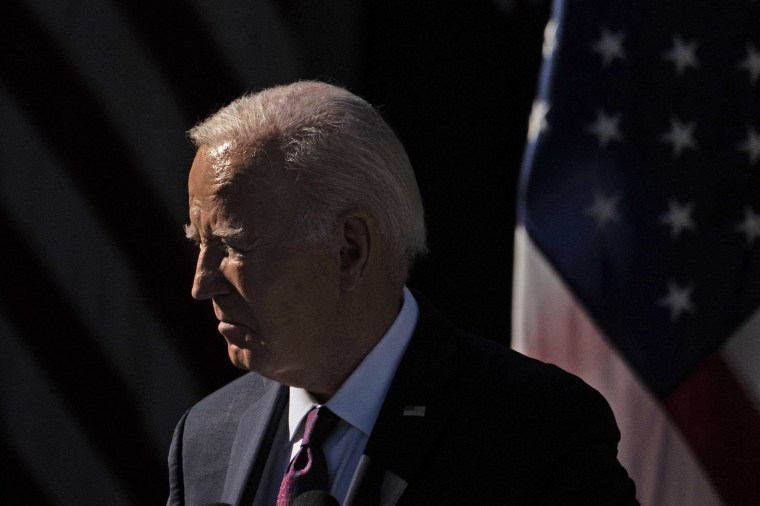
WASHINGTON — The United States launched attacks against Iran-backed militias in Iraq and Syria on Friday, its first retaliatory strikes for the killing of three American soldiers in Jordan last weekend.
U.S. military forces struck more than 85 targets at seven facilities, National Security Council spokesman John Kirby told reporters. U.S. Central Command said the facilities included command and control operations, intelligence centers, rockets and missiles, and drone storage sites.
“Our response began today. It will continue at times and places of our choosing,” President Joe Biden said in a statement. “The United States does not seek conflict in the Middle East or anywhere else in the world. But let all those who might seek to do us harm know this: If you harm an American, we will respond.”
The military action is a significant escalation in Washington’s bid to deter the growing threat from Iran-backed groups across the Middle East — a step fraught with risk abroad and at home, as Biden seeks to prevent the Israel-Hamas war from spiraling into a wider conflict while working to secure his re-election.
The Biden administration had made clear that the U.S. would take military action after the drone attack by Iran-backed militants at a remote U.S. base in Jordan, in which more than 40 others were wounded. Biden attended the dignified return of the three slain U.S. soldiers at Dover Air Force Base earlier Friday.
Syrian state television reported that the strikes killed and wounded people, but it did not specify an exact number of casualties.
The Iraqi army condemned the U.S. airstrikes against Iran-backed militias in Iraqi border areas, calling the air assault a “violation of Iraqi sovereignty” and “a threat that will drag Iraq and the region into unforeseen consequences.”
Yahya Rasool Abdullah, a spokesman for the commander-in-chief of the Iraqi Armed Forces, asserted that the “strikes come at a time when Iraq is striving to ensure the stability of the region.”
Follow for live updates
Kirby, the National Security Council spokesman, told reporters that the U.S. informed the Iraqi government about the strikes before they were launched.
Before the strikes, Defense Secretary Lloyd Austin had promised a “multitier response” and officials told NBC News that Biden settled on a plan expected to unfold over multiple days, possibly weeks. American forces are expected to hit targets in different countries outside Iran, U.S. officials said.
Biden seeks to deter widening conflict
Even as Biden and his deputies vowed to retaliate, they have added the caveat that Washington does not seek a war with Iran or a wider conflict in the region, a sentiment that was reiterated in the president’s statement on Friday. Their calibrated statements appeared to indicate that it was unlikely the reprisal strikes would hit targets inside Iran itself.

“We will continue to work to avoid a wider conflict in a region, but we will take all necessary actions to defend the United States, our interests and our people,” Austin told reporters at a Pentagon news conference Thursday.
Austin repeated much of that statement on Friday after the strikes, adding in part that “the President and I will not tolerate attacks on American forces.”
Iran has denied involvement in the drone attack and said it, too, does not seek a direct confrontation with the U.S.
After previous attacks by Tehran-backed groups in Iraq and Syria that wounded but did not kill some American troops, Biden ordered airstrikes that targeted the militants’ weapons depots and other sites. But the pace of rocket and drone attacks dramatically increased after the Oct. 7 Hamas terrorist attack on Israel and the subsequent Israeli assault on the Gaza Strip.
There have been more than 160 attacks on U.S. forces by Iran-backed groups since Oct. 7, according to the Pentagon.
Meanwhile, Houthi forces in Yemen have attacked commercial ships in the Red Sea and the Gulf of Aden with drones and missiles, vowing to continue until Israel halts its military campaign in Gaza.
U.S. Navy warships have shot down dozens of the Houthi drones and missiles but some have hit commercial vessels, prompting a slew of major shipping companies to shift cargo onto other, longer routes. In recent weeks, the U.S. military also carried out strikes against Houthi forces in Yemen, hitting launch sites and command centers.
It’s unclear if the Biden administration will choose to go after Iranian ships suspected of assisting the Houthis to find targets with electronic intelligence.
The last time the U.S. military targeted an Iranian ship was in 1988, when the Navy launched retaliatory attacks in the Persian Gulf after an American vessel was hit by a mine planted by Iran.
Tehran has denied direct involvement in the Jordan incident but has warned that it will respond to any threat from the U.S.
“We will not start any war but, if anyone wants to bully us, they will receive a strong response,” Iranian President Ebrahim Raisi said in a televised speech Friday.
“We hear threats coming from American officials, we tell them that they have already tested us and we now know one another, no threat will be left unanswered,” the chief of Iran’s Revolutionary Guard, Hossein Salami, said Wednesday.
 Latest Breaking News Online News Portal
Latest Breaking News Online News Portal





